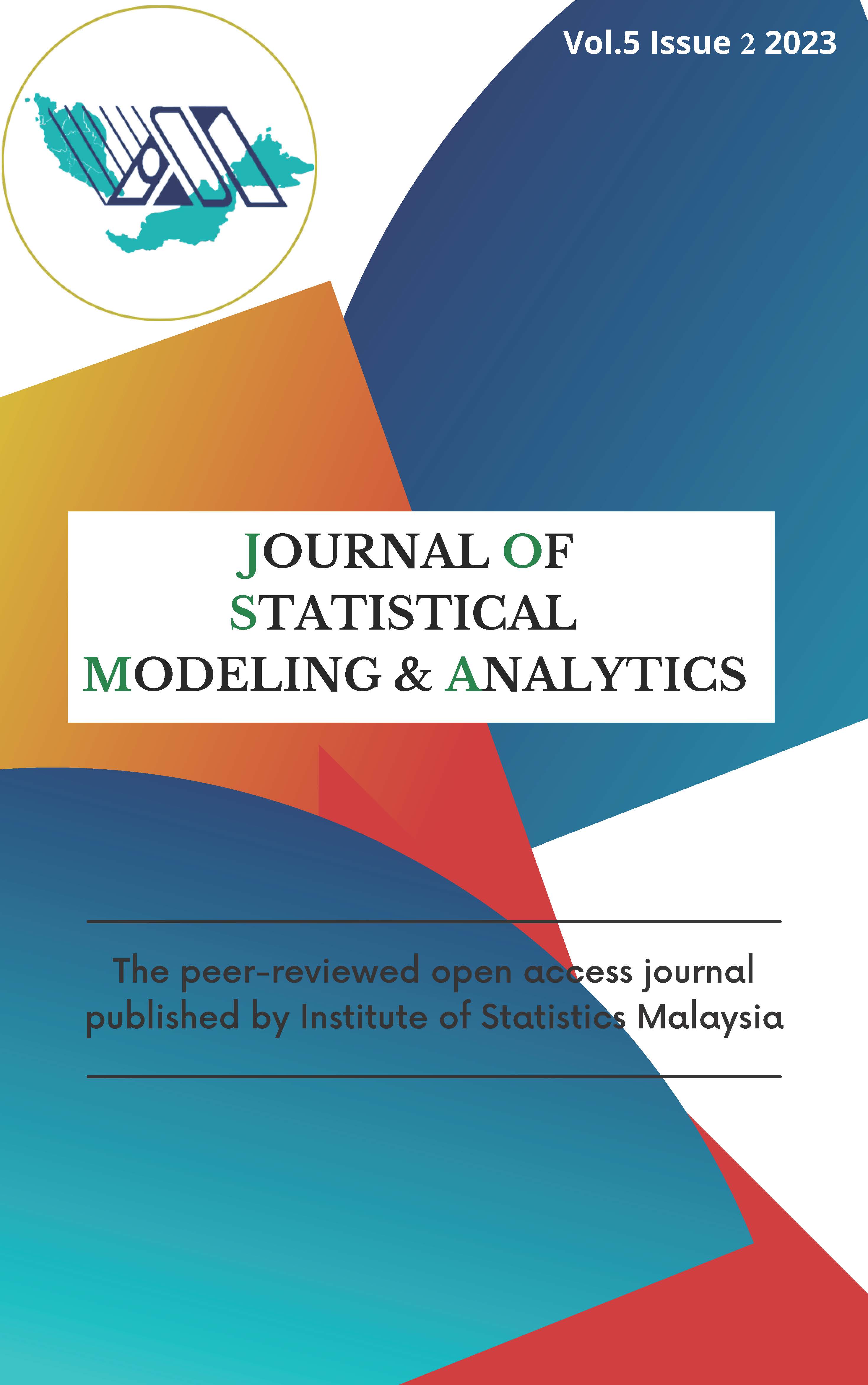Bayesian Restricted Stein-rule Least Squares with non-spherical Disturbances
DOI:
https://doi.org/10.22452/josma.vol5no2.2Keywords:
Autocorrelated error, Heteroscedasticity, restricted, stein rule, Gibbs Sampler, Bayesian and intertwineAbstract
Bayesian restricted stein-rule least squares is a novelty estimator introduced to obtain parameters of the family of restricted least squares with intertwined heteroscedastic and autocorrelated disturbance errors. Errors in regression modelling set to measure the quality of the data and or model of which intertwining of most prominent errors disturbances play a significant role in determining the quality of the aforementioned. Efforts were geared towards the comparison of the performances and relative efficiency of the small sample property of Bayesian and classical family of restricted stein-rule least squares. The sample size was set at 25 to capture the intertwined disturbance errors, and the iteration of the Monte Carlo simulation was set at 10000 for both classical and Bayesian paradigms. and for both Autoregressive of order one (AR(1)) and Moving average of order one (MA(1)) processes respectively were set asymmetrically as -0.8,-0.5,-0.3, 0,0.3,0.5 and 0.8 while as a scale of heteroscedasticity was set at 0-homoscedasticity, -0.3-mild,-0.5-moderate and (0.7,0.9)-severe. The outcome of the study pointed out that Bayesian estimation (both posterior mean and Bayes estimates) for both restricted and restricted stein-rule estimators outperformed classical restricted and restricted stein-rule estimators in both performances and relative efficiency. It is therefore recommended to make use of the Bayesian framework when encountering similar disturbances in a small sample size.


